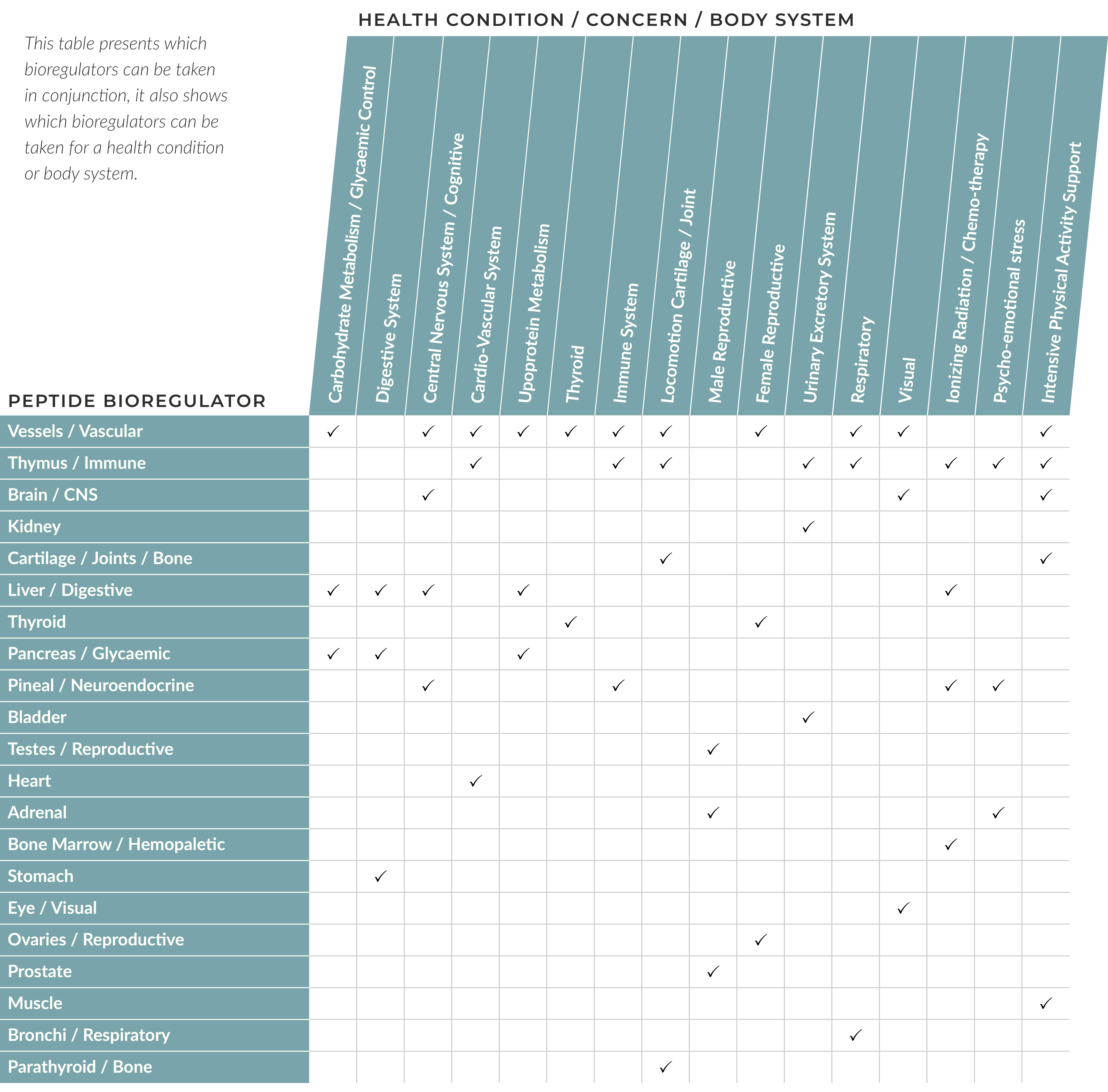Read on to find out more about bioregulators and how they can help your health.
What Are Peptides Made Of?
Peptides are made from amino acids, which alongside proteins, are the building blocks of life and are normally sourced from food. The human body uses amino acids to make proteins that help the body perform a wide range of functions, including breaking down food and repairing tissue.
When two amino acids connect, they become known as a di-peptide. Today, many biologists consider this moment to infer the ability of “biological information” to be transferred.
As the length of these amino-acid chains grow, the names change. When between 3 and 6, they are called ‘short-chain peptides’ (otherwise known as bioregulators), and as the length of amino-acids increases further they change from being called peptides, to being called proteins, and then on to hormones.
What Makes Them So Significant?
Peptides have been a huge area of interest for many scientists – and recent research has confirmed that these peptides found in the diet can have profound effects on tissues, glands and even organs.
For example, over 40-years of published research has highlighted that short-chain peptides (bioregulators) can act as gene switches. This has massive implications for precision in health care and its management.
We are passionate about promoting the benefits that peptides can offer, and want to share our knowledge about how they can protect and improve our long-term health.
Want To Know More?
We love hearing from our customers, so if you have any questions or want to know more about the science behind our bioregulators, please don’t hesitate to get in contact here
Peptide Bioregulators and Recommended Protocols


